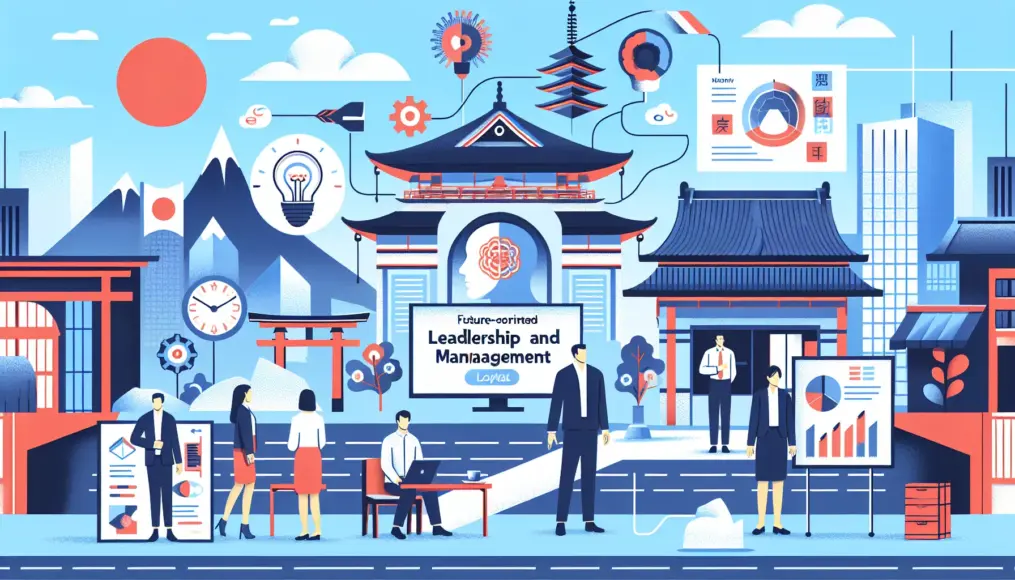In today’s rapidly evolving world, effective leadership and management are becoming increasingly critical themes. Leadership isn’t just about giving orders; it’s about nurturing the ability to guide a team toward a common goal. On the other hand, management plays a supportive role in leadership, establishing the foundation necessary for organizations to function smoothly. When these elements work together, they enable success even in a constantly changing society.
Modern leaders are expected to possess adaptability and a respect for diversity. The ability to leverage the unique backgrounds of team members to discover creative solutions is essential for effective leadership moving forward. This approach allows organizations to overcome new challenges and achieve sustainable growth.
This article will delve into the fundamental concepts of leadership and management, explore their significance in today’s society, and consider strategies for the future. Let’s think through these ideas together.
- Deepen your understanding of the basics of leadership and management
- Explore the importance of leadership in today’s society
- Consider strategies for future leadership
The Essential Concepts of Leadership and Management
Leadership and management are critical elements for the success of any organization. While they are distinct concepts, they complement each other and play vital roles in supporting the growth of an organization. In this chapter, we’ll explore the fundamental understanding of leadership and management, reflecting on the skills and attitudes that will be essential in the times ahead.
Leadership refers to the ability to guide and influence people toward a common goal. On the other hand, management involves effectively utilizing an organization’s resources and systematically advancing operations. By deepening our understanding of these concepts, we can discover how to leverage them in today’s dynamic business environment.
What Is Leadership?
Leadership is about inspiring others and harnessing their strengths to move toward shared goals. A leader possesses a vision and communicates it effectively to their team, motivating members to take action. This fosters unity across the organization as everyone works towards common objectives.
Effective leadership requires strong communication skills and the ability to build trust. Additionally, being adaptable and flexible in the face of change is crucial. A leader who embodies these qualities can boost team motivation and drive better results.
- Leadership is the power to guide people toward goals
- Inspiring the team through shared vision
- Importance of communication skills and building trust
The Role of Management
Management plays a pivotal role in effectively utilizing an organization’s resources and systematically advancing operations. Managers strategize, delegate tasks, and monitor progress to ensure the team achieves its goals. This structured approach enables the organization to operate smoothly and achieve efficient outcomes.
Management demands strong problem-solving and decision-making skills. Particularly, it’s important to gather information through effective communication within the team to make informed choices. When management is executed effectively, leadership thrives, and the entire organization can achieve success.
- Management is about effectively utilizing resources
- Systematic advancement of operations is required
- Problem-solving and decision-making skills are crucial
The Importance of Leadership in Modern Society
In today’s rapidly changing world, the significance of effective leadership is becoming increasingly apparent. To navigate the evolving business landscape, technological advancements, and shifting societal values, leaders are expected to adopt flexible and adaptive mindsets. Leadership that can respond to change is crucial for organizations to overcome new challenges and continue to thrive.
Moreover, respecting and leveraging diversity is another key element for contemporary leaders. When team members with varied backgrounds and perspectives come together, they can generate more creative ideas and solutions. Leaders must harness this diversity to unlock the full potential of their teams, fostering unity within the organization and establishing a stronger foundation for success.
Adapting to a Changing Environment
In a world characterized by constant change, leaders must be capable of quickly responding to new situations. By remaining flexible in the face of market and technological evolution, as well as economic fluctuations, organizations can maintain their competitive edge. Effective leaders embrace change, viewing it as an opportunity rather than a setback.
Additionally, leaders have the responsibility to share changes with their colleagues, guiding everyone toward a common goal. This type of adaptive leadership enhances organizational cohesion and inspires team members to work together effectively.
- The ability to respond quickly to change is essential
- Embracing market and technological evolution as opportunities
- Playing a crucial role in enhancing organizational unity
Respecting and Leveraging Diversity
Respecting and utilizing diversity has become a vital theme in modern leadership. When team members bring different perspectives and experiences to the table, they are more likely to develop innovative solutions, ultimately improving the organization’s overall performance. Leaders need to create an environment that not only accepts diversity but also encourages it to flourish.
By prioritizing diversity, teams can more easily generate fresh ideas and approaches. Additionally, fostering an atmosphere where members can freely express their opinions builds trust and strengthens the entire organization. Leaders who support this process can cultivate stronger teams that are well-equipped to tackle challenges head-on.
- Leveraging diversity leads to creative solutions
- Embracing different perspectives enhances organizational performance
- Free expression of ideas builds trust
The Impact of Psychological Factors on Leadership
Psychological factors have a significant influence on leadership. Understanding emotional intelligence and motivation is essential for effective leadership. When leaders comprehend their own emotions and those of their team members, and respond appropriately, it fosters better communication and collaboration. Additionally, techniques for maintaining team members’ motivation are crucial as they directly affect the team’s overall performance. In this section, we will explore how these psychological elements impact leadership.
The Role of Emotional Intelligence
Emotional intelligence refers to the ability to understand one’s own emotions and sensitively respond to the emotions of others. Leaders with high emotional intelligence can build stronger trust with their team members, leading to smoother communication. In such an environment, members feel safe to express their opinions, which can lead to the emergence of creative ideas and solutions.
Moreover, leaders with emotional intelligence can remain calm under stress and pressure, helping to maintain the morale of the entire team. When leaders manage their emotions effectively, their members are influenced positively, creating an uplifting atmosphere.
- Emotional intelligence deepens trust
- Smooth communication is fostered
- A leader’s emotional management positively impacts the entire team
Strategies for Maintaining Motivation
In leadership, it is vital to sustain team members’ motivation. Highly motivated teams tend to achieve better results. Leaders can encourage motivation by showing understanding and support for their members’ goals.
Specifically, providing appropriate feedback and evaluations, as well as setting tasks that allow members to feel a sense of accomplishment, are effective strategies. Additionally, respecting the individuality and values of team members and creating an environment where they can reflect their opinions is crucial for enhancing motivation. By being considerate in these ways, leaders can boost engagement among their members and contribute to the overall growth of the organization.
- Motivation is a crucial factor that directly impacts performance
- Appropriate feedback and evaluations are effective
- Creating an environment that respects members’ individuality is essential
Leadership Strategies for a Sustainable Future
Leadership strategies that look towards the future are vital for organizations aiming for sustained growth and adaptability to change. Leaders with a clear vision can share it with their teams, ensuring everyone is aligned in the same direction. In organizations where the vision is firmly established, members understand their roles and can work collaboratively towards achieving their goals.
Additionally, it is crucial for leaders to consider ways to promote sustainable growth. By incorporating strategies that take into account environmental and social considerations, organizations can achieve long-term success. In this section, we will explore how to set and share a vision, along with specific methods to realize sustainable growth.
Setting and Sharing a Vision
In leadership, the establishment of a vision is of utmost importance. A vision represents the future of the organization and clearly defines the goals that members should strive for. Effective leaders are able to articulate this vision concretely and share it across the team, which in turn boosts motivation among members.
Regular communication is essential for sharing the vision. Leaders should convey the significance of the vision to their team members, illustrating how they can contribute to its realization. This fosters a sense of unity, enhancing the organization’s cohesion and facilitating goal achievement.
- A vision is a key element that illustrates the organization’s future.
- Regular communication is necessary.
- Demonstrating member contributions fosters a sense of unity.
Promoting Sustainable Growth
To achieve sustainable growth, it is necessary to adopt strategies that consider environmental and social factors. Leaders must consistently assess whether the organization’s activities are sustainable, focusing on resource optimization and efficient operations. Additionally, cultivating an organizational culture that prioritizes employee growth and well-being contributes to sustainable growth.
Moreover, respecting team members’ opinions and embracing their suggestions can lead to more diverse and effective improvement strategies. This approach fosters organizational growth and paves the way for long-term success.
- Strategies that consider environmental and social factors are essential.
- Focus on resource optimization and efficient operations.
- Respecting employees’ opinions can lead to diverse improvement strategies.
Conclusion
Leadership and management are essential components in today’s business landscape. Effective leaders possess a clear vision and share it with their teams, unifying the organization and harnessing the collective effort to achieve goals. Emotional intelligence and the ability to maintain motivation are also crucial; by being mindful of these aspects, leaders can foster a better team environment.
Moreover, to promote sustainable growth, it’s important to adopt strategies that take environmental and social considerations into account. When leaders integrate these elements into their thinking and practices, organizations can maintain their competitiveness even in changing environments and continue to grow in the future.
- Leadership and management are keys to success
- Emotional intelligence and motivation impact team performance
- Strategies focused on sustainable growth are essential
We encourage you to leverage this knowledge to enhance your own leadership and management skills. We would love to hear your thoughts and experiences in the comments section!













































Comment